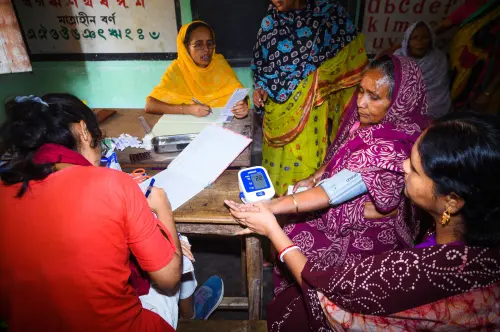Over 200 delegates from 50 countries gather this week in Washington for the Presidential Summit on Entrepreneurship. The summit hosts entrepreneurs to teach and learn innovative ways to strengthen professional and social relationships between the U.S. and the Islamic world. During his first major address to the Muslim world, delivered in Cairo last June, President Obama pledged to increase engagement through entrepreneurship, exchange programs and multilateral service initiatives.
Volunteer-led development initiatives have begun to act on Obama’s call for citizen diplomacy and private-sector engagement. The Initiative on International Volunteering and Service at Brookings and the Building Bridges Coalition have fueled an emerging legislative initiative that calls for increasing the role of international volunteers in the U.S. diplomatic agenda and development programs. This Service World Initiative has drawn from Brookings research outlining options to advance the president’s call for multilateral service.
As seen last year, for the first time in history, the majority of the world’s population lived in urban areas. And this trend is accelerating at an unprecedented rate. By 2050, urban dwellers are expected to make up about 70 percent of Earth’s total population. These informed 21st century urban citizens demand 24-7 connectivity, smart electric grids, efficient transportation networks, safe food and water, and transparent social services. All these demands place a huge strain on existing city infrastructures and the global environment. Most affected by this rapid urban boom, are the emerging markets. So how do we tackle this development dilemma?
One way is for highly-skilled experts, from a range of countries, to volunteer their time in emerging markets to help improve economic development, government services and stimulate job growth. This type of pro-bono program has many benefits. It benefits the urban areas in these emerging markets by leveraging intelligence, connecting systems and providing near-term impact on critical issues such as transportation, water, food safety, education and healthcare. It benefits the expert volunteers by fostering their teamwork skills, providing a cultural learning experience, and broadening their expertise in emerging markets.
IBM, which chairs the Building Bridges Coalition’s corporate sector, hosts a range of volunteer-led global entrepreneurship programs that improve economic stability for small- and medium-sized businesses, increase technology in emerging markets and open doors for the next generation of business and social leaders. This program connects high-talent employees with growing urban centers around the world and fosters the type of leadership to help IBM in the 21st century.
Recently, IBM sent a group of experts to Ho Chi Minh City as part of its Corporate Service Corps, a business version of the Peace Corps. This was the first Corporate Service Corps mission to be made up of executives, and the first to help a city in an emerging market analyze its challenges holistically and produce a plan to manage them. As a result, the city has now adopted a 10-year redevelopment plan that includes seven pilot programs in areas ranging from transportation to food safety. IBM will also help the city set up academic programs to prepare young Vietnamese to launch careers in technology services. IBM will continue this program throughout the next couple years to evolve the next set of global business and cultural hubs utilizing the volunteer hours of some of its most seasoned experts.
The Presidential Summit this week will further Obama’s call to “turn dialogue into interfaith service, so bridges between peoples lead to action.” The policy initiative of the Building Bridges Coalition, coupled with entrepreneurial innovations such as IBMs, can foster greater prosperity and service between the U.S. and our global partners.
The Brookings Institution is committed to quality, independence, and impact.
We are supported by a diverse array of funders. In line with our values and policies, each Brookings publication represents the sole views of its author(s).


Commentary
Presidential Summit on Entrepreneurship: Experts Volunteer Abroad
April 27, 2010